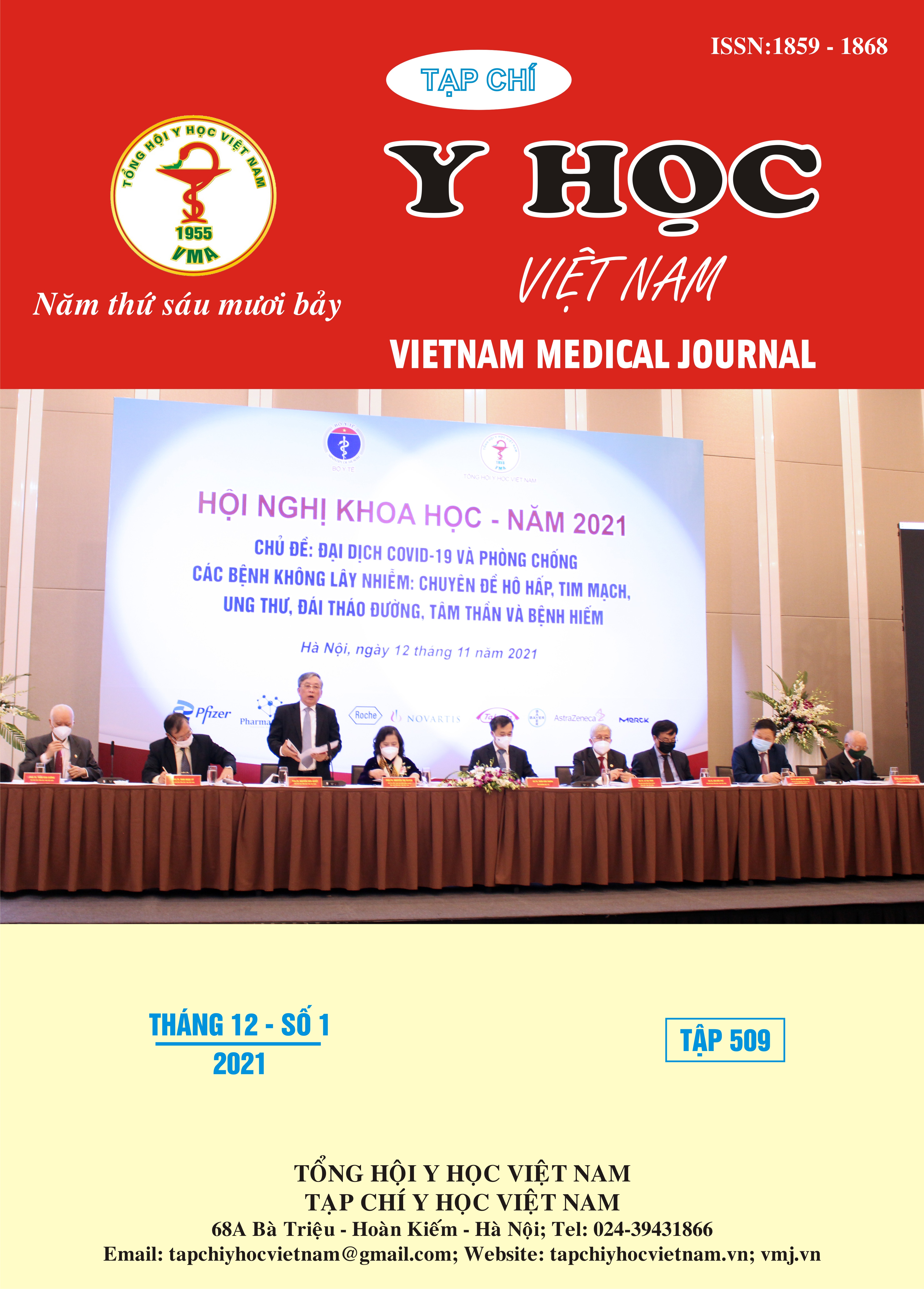EFFECTS AND ADVERSE EFFECTS OF THE ANCHORFAST DEVICE IN SECURING THE ENDOTRACHEAL TUBE IN INVASIVE MECHANICALLY VENTILATED PATIENTS
Main Article Content
Abstract
The study aimed to compare the effectiveness of the endotracheal tube securement by AnchorFast and by adhesive tape in Invasive mechanically ventilated patients. This was a randomised control intervention study, the study showed that in 60 patients divided into 2 groups, none of the patients who had with the AnchorFast device had an unintended deviation or endotracheal tube slip. Meanwhile, in the adhesive tape group the rate of endotracheal tube deviation was 7/30 (23.3%) and of unintended extubation was 1/30 (3.3%). The rate of ulcer in the adhesive tape of 10/30 (33.3%), in the AnchorFast of 4/30 (13.3%). In particular, the ulcer point in AnchorFast was found in tongue of 3/30 (10%) and lips of 1/30 (3.33%), mainly in stage I of 3/30 (10%) and stage II of 1/30 (3.33%). In the adhesive tape group, the ulcer was located on tongue of 4/30 (13,33%) and lips of 6/30 (20%), at stage I of 7/30 (23.33%), at stage II of 3/30 (10%). The study showed that the effectiveness of intubation securement by AnchorFast device was higher than that of the group using adhesive tape in terms of unintended tube deviation and endotracheal tube slip. The ulcer rate of the group of AnchorFast was lower than group of adhesive tape tube fixation.
Article Details
Keywords
AnchorFast device, endotracheal intubation tube securement, adhesive tape, invasive mechanically ventilated patients
References
2. Kaplow, R. and M. Bookbinder, A comparison of four endotracheal tube holders. Heart & lung: the journal of critical care, 1994. 23(1): p. 59-66.
3. Gardner, A., et al., Best practice in stabilisation of oral endotracheal tubes: a systematic review. Aust Crit Care, 2005. 18(4): p. 158, 160-5.
4. Landsperger, J.S., et al., The effect of adhesive tape versus endotracheal tube fastener in critically ill adults: the endotracheal tube securement (ETTS) randomized controlled trial. Critical Care, 2019. 23(1): p. 161.
5. Zaratkiewicz, S., C. Teegardin, and J.D. Whitney, Retrospective review of the reduction of oral pressure ulcers in mechanically ventilated patients: a change in practice. Critical care nursing quarterly, 2012. 35(3): p. 247-254.
6. NPUAP, Pressure Injury Stages. 2016.
7. Huỳnh Văn Ân, M.T.T.B.D.v.c., Độ sâu thích hợp của ống nội khí quản qua đường miệng ở người Việt Nam trưởng thành. 2006.
8. Nguyễn Thị Châm, Đ.T.N., Phạm Ngọc Thắng, Hoàng Thị Phương, Đánh giá hiệu quả ứng dụng Anchor fast trong phòng loét tỳ đè liên quan đến nội khí quản. Tạp chí điều dưỡng Việt Nam, 2018.


